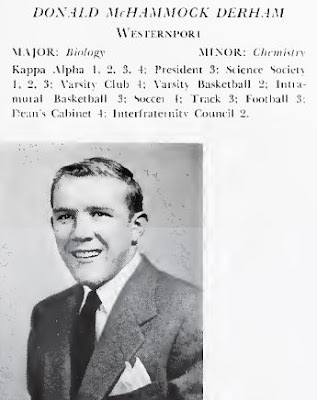On June 12, 2013 Nona Martin, Erin Cooper, Michael Derege, and Samantha Gross traveled out to Johnson's house to learn about her life as a teacher during integration.
 |
| Then and Now: Eloise Johnson |
Eloise Johnson is the wife of the late local musician, Jazz Johnson While her husband had some local fame in the county, Eloise has had an equally interesting life which she shared with the team at her house on the outskirts of Chestertown. She described her time coming into town to go to Garnett High School, remembering both bad and good teachers during her career. She counts herself lucky as having graduated in 1949, long before integration occurred and, in her opinion, the quality of education decreased.
During the summers she would work and recounts some of the differences between the jobs the white girls would do versus the black girls. After graduation, she went on to teach and eventually went to Virginia State University, a predominantly black school at the time. Her first teaching job was as a first grade teacher. She eventually started teaching at Garnett in the early seventies.She remembers her time teaching with fondness, even with integration. Her teaching philosophy was that "all children can learn
something."
Her social life at the time included the famous Uptown Club where she saw people like Ray Charles and more. She remembers the club changing for the worse overtime until its eventual destruction. She is also a member of Elks and she still loves playing bingo and being active in church. She also raised her older sister's child, whose daughter is going to Albright University in the fall.
 |
| Erin Cooper (right) spearheaded the interview with Eloise (left). |
In terms of Civil Rights, she believes change happened gradually without too much fuss or anything dramatic. She also finds Kent County is still facing problems today.










